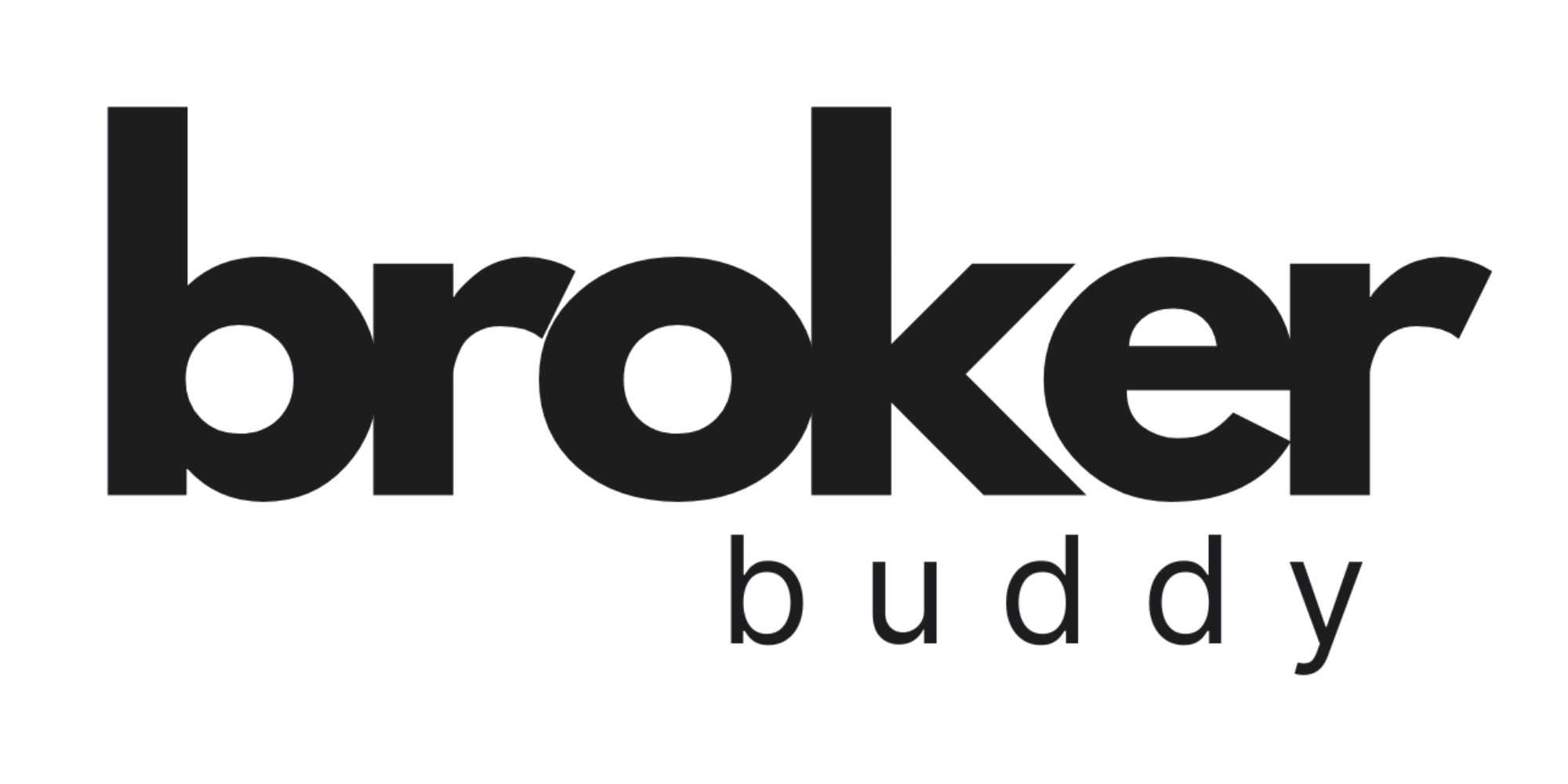
Productivity Hacks for Real Estate Agents
Introduction to Real Estate Productivity
In the fast-paced world of real estate, where time is money and competition is fierce, productivity isn't just a buzzword—it's a necessity. Whether you're a seasoned agent or just starting out, mastering productivity is key to closing more deals, building stronger client relationships, and achieving sustainable success in the industry. In this guide, we'll explore a range of productivity hacks tailored specifically for real estate agents. From time management techniques to leveraging technology, these strategies will help you work smarter, not harder, so you can focus on what truly matters: growing your business and satisfying your clients.

Why Productivity Matters for Real Estate Agents
Productivity is crucial in real estate because the industry demands agents wear multiple hats—marketer, negotiator, advisor, and more—all while juggling numerous clients, listings, and transactions. Unlike other professions, real estate agents don’t have a standard 9-to-5 workday. Success often hinges on how efficiently you can manage your time, tasks, and client relationships.
The Competitive Nature of the Real Estate Industry
The real estate market is notoriously competitive. Whether you’re dealing with residential or commercial properties, there are always new agents entering the market, each one eager to establish themselves and take a piece of the pie. In this environment, productivity isn’t just about getting more done—it’s about maintaining a competitive edge. By implementing effective productivity strategies, you can ensure that you’re not just keeping up with your competitors but staying ahead of them.
Balancing Multiple Roles and Responsibilities
Real estate agents must balance multiple roles, from client management to marketing, sales, and even legal advisement. Each role comes with its own set of tasks and responsibilities, making it easy to feel overwhelmed. Without a clear strategy to manage these roles efficiently, it's easy for tasks to slip through the cracks, leading to missed opportunities and dissatisfied clients. That's why mastering productivity is essential—not just for your own peace of mind, but for the success of your business.
Setting Clear Goals and Objectives
One of the cornerstones of productivity is setting clear, actionable goals. For real estate agents, this means defining what you want to achieve in both the short and long term and breaking these goals down into manageable steps.
Short-Term vs. Long-Term Goals
Understanding the difference between short-term and long-term goals is crucial. Short-term goals might include closing a certain number of deals this month or increasing your client base by a specific percentage. Long-term goals, on the other hand, could involve expanding your business to new markets or achieving a certain level of financial independence. By distinguishing between these two types of goals, you can create a roadmap that guides your daily activities while keeping an eye on your broader career objectives.
The Importance of SMART Goals in Real Estate
The SMART criteria—Specific, Measurable, Achievable, Relevant, and Time-bound—are particularly useful for real estate agents. For example, instead of setting a vague goal like "increase sales," a SMART goal would be "close 15 residential properties worth $500,000 each within the next six months." This level of specificity not only clarifies what success looks like but also makes it easier to track your progress and adjust your strategies as needed.
Time Management Techniques for Real Estate Professionals
Effective time management is the bedrock of productivity. With the right techniques, real estate agents can ensure that they’re focusing their energy on the tasks that yield the highest returns.
Prioritizing Tasks with the Eisenhower Matrix
The Eisenhower Matrix is a powerful tool for prioritizing tasks based on their urgency and importance. By categorizing your tasks into four quadrants—urgent and important, important but not urgent, urgent but not important, and neither urgent nor important—you can focus on what truly matters and delegate or eliminate the rest. This method helps real estate agents avoid the common pitfall of getting bogged down in busy work, allowing them to focus on activities that drive business growth.
The Pomodoro Technique for Real Estate Tasks
The Pomodoro Technique, which involves working in focused intervals of 25 minutes followed by a short break, is particularly effective for real estate tasks that require intense concentration, such as writing contracts or conducting market research. By breaking your work into manageable chunks, you can maintain high levels of focus and productivity without feeling overwhelmed.
Time Blocking for Property Showings and Client Meetings
Time blocking involves scheduling specific blocks of time for different activities, such as property showings, client meetings, and administrative work. This technique ensures that you’re dedicating enough time to each aspect of your business while preventing tasks from bleeding into each other. For example, you might block out mornings for client meetings and afternoons for property showings, allowing you to manage your schedule more effectively.
Leveraging Technology for Increased Efficiency
Technology is a game-changer for real estate agents looking to boost their productivity. By leveraging the right tools, you can automate repetitive tasks, manage your listings more effectively, and stay connected with clients no matter where you are.
Best CRM Tools for Real Estate Agents
Customer Relationship Management (CRM) tools are essential for managing client interactions, tracking leads, and maintaining detailed records of every transaction. Tools like Salesforce, HubSpot, and Real Geeks offer robust features tailored to the needs of real estate agents, such as automated follow-ups, lead scoring, and comprehensive reporting. By using a CRM, you can ensure that no lead falls through the cracks and that you’re always providing top-notch service to your clients.
Using Virtual Tours and 3D Models to Save Time
Virtual tours and 3D models have revolutionized the way real estate agents showcase properties. Instead of spending hours on in-person showings, agents can now offer clients a detailed, immersive experience of a property from the comfort of their own homes. This not only saves time but also allows you to reach a wider audience, including out-of-town buyers who might not be able to visit in person.
Mobile Apps for Managing Listings on the Go
Real estate agents are often on the move, making mobile apps an essential part of their productivity toolkit. Apps like Zillow Premier Agent, Dotloop, and RPR Mobile allow you to manage listings, communicate with clients, and even sign documents on the go. By having these tools at your fingertips, you can respond to client inquiries, update listings, and close deals faster, no matter where you are.
Streamlining Client Communication
Efficient communication is key to maintaining strong client relationships and ensuring that transactions go smoothly. By streamlining your communication processes, you can save time and reduce the risk of misunderstandings.
Automating Follow-Ups and Notifications
Automating follow-ups and notifications is one of the easiest ways to streamline client communication. Tools like Mailchimp, Zapier, and even your CRM can automatically send follow-up emails, appointment reminders, and status updates to clients. This not only saves you time but also ensures that your clients are always informed and engaged throughout the buying or selling process.
Using Email Templates for Quick Responses
Email templates are a simple yet effective way to save time while maintaining professionalism. By creating templates for common inquiries, such as property availability or next steps in the transaction process, you can respond to clients quickly without sacrificing the quality of your communication. This is especially useful for busy agents who receive a high volume of emails each day.
The Role of Social Media in Client Engagement
Social media is a powerful tool for engaging with clients and marketing your services. Platforms like Facebook, Instagram, and LinkedIn allow you to showcase your listings, share client testimonials, and even run targeted ad campaigns. By maintaining an active presence on social media, you can build stronger relationships with your clients, attract new leads, and establish yourself as a thought leader in the real estate industry.
Delegation and Outsourcing Strategies
As a real estate agent, your time is valuable. Delegating and outsourcing tasks that don’t require your direct involvement can free up time for activities that generate revenue, such as client meetings and property showings.
When to Hire a Virtual Assistant
Hiring a virtual assistant (VA) can be a game-changer for busy real estate agents. VAs can handle a wide range of tasks, from scheduling appointments and managing your calendar to handling email correspondence and updating listings. By delegating these tasks to a VA, you can focus on activities that directly contribute to your business growth, such as meeting with clients and closing deals.
Outsourcing Administrative Tasks to Focus on Sales
Administrative tasks, while necessary, can take up a significant amount of your time. Outsourcing these tasks—such as data entry, document preparation, and transaction coordination—to a dedicated administrative professional allows you to focus on what you do best: selling real estate. This not only increases your productivity but also ensures that all aspects of your business are handled efficiently and professionally.
Staying Organized with Digital Tools
Staying organized is essential for maintaining productivity, especially in a fast-paced industry like real estate. Digital tools can help you keep track of important documents, manage your contacts, and stay on top of your to-do list.
Using Cloud Storage for Easy Document Access
Cloud storage solutions like Google Drive, Dropbox, and OneDrive offer a convenient way to store and access documents from anywhere. By storing your contracts, property listings, and client information in the cloud, you can ensure that you always have the information you need at your fingertips, whether you’re in the office, at a property showing, or on the go.
Managing Contacts and Leads Efficiently
Efficiently managing your contacts and leads is crucial for staying organized and maintaining strong client relationships. Digital tools like CRM systems and contact management apps can help you keep track of client information, schedule follow-ups, and monitor the progress of each lead. This ensures that no potential client falls through the cracks and that you’re always on top of your game.
Enhancing Personal Productivity through Healthy Habits
Productivity isn’t just about managing your time and tasks—it’s also about maintaining your physical and mental well-being. By adopting healthy habits, you can enhance your personal productivity and stay energized throughout the day.
The Impact of Exercise on Real Estate Performance
Exercise is a proven way to boost energy levels, improve focus, and reduce stress—all of which are essential for real estate agents who need to stay sharp and responsive throughout the day. Whether it’s a morning run, a quick workout at the gym, or a yoga session, regular physical activity can help you maintain the stamina and mental clarity needed to succeed in the competitive world of real estate.
Nutrition Tips for Sustaining Energy Levels
A healthy diet is crucial for sustaining energy levels and maintaining focus throughout the day. Real estate agents often have irregular schedules, making it easy to fall into the trap of skipping meals or relying on fast food. By prioritizing a balanced diet rich in whole grains, lean proteins, and fresh fruits and vegetables, you can ensure that you’re fueling your body with the nutrients it needs to perform at its best.
Mindfulness and Stress Management Techniques
The real estate industry can be stressful, with constant deadlines, client demands, and the pressure to close deals. Mindfulness practices, such as meditation, deep breathing exercises, and even short breaks for reflection, can help you manage stress and maintain a positive mindset. By incorporating these techniques into your daily routine, you can improve your overall well-being and maintain a high level of productivity.
Networking and Relationship Building for Long-Term Success
Building and maintaining strong relationships is key to long-term success in real estate. Networking not only helps you generate leads but also allows you to establish a reputation as a trusted expert in your field.
Effective Networking Strategies for Real Estate Agents
Networking is more than just attending events—it’s about building genuine relationships with other professionals and potential clients. Effective networking strategies include attending industry events, joining local business associations, and even participating in online forums and social media groups. By consistently putting yourself out there, you can expand your network, gain valuable insights, and uncover new opportunities for growth.
Building and Maintaining a Strong Referral Network
Referrals are a powerful source of business for real estate agents. By building and maintaining a strong referral network, you can generate a steady stream of high-quality leads. This involves staying in touch with past clients, collaborating with other professionals in related industries (such as mortgage brokers and home inspectors), and always providing exceptional service that encourages clients to recommend you to others.
Attending Industry Events and Workshops
Continuing education is essential in real estate, and industry events and workshops offer valuable opportunities to learn from experts, stay updated on market trends, and network with peers. Whether it’s a local real estate association meeting, a national conference, or an online seminar, attending these events can help you stay ahead of the curve and build a strong foundation for long-term success.
Continuous Learning and Skill Development
In an industry as dynamic as real estate, continuous learning is key to staying competitive. By regularly updating your skills and knowledge, you can adapt to changes in the market and offer your clients the best possible service.
The Importance of Staying Updated on Market Trends
The real estate market is constantly evolving, with new trends, regulations, and technologies emerging all the time. Staying updated on these changes is crucial for maintaining your competitive edge and providing your clients with the most accurate and relevant information. This involves regularly reading industry publications, attending webinars, and participating in discussions with other real estate professionals.
Pursuing Advanced Certifications and Training
Advanced certifications and training programs can help you specialize in certain areas of real estate, such as luxury properties, commercial real estate, or property management. Pursuing these certifications not only enhances your expertise but also sets you apart from other agents, making you more attractive to clients looking for specific services.
Learning from Successful Real Estate Agents
One of the best ways to improve your skills is by learning from successful real estate agents. This can involve seeking out mentors, attending workshops led by industry leaders, or simply studying the strategies of top-performing agents in your area. By learning from their successes and mistakes, you can gain valuable insights and apply them to your own business.
Balancing Work and Life as a Real Estate Agent
Work-life balance is a challenge for many real estate agents, given the demands of the job. However, achieving a healthy balance is essential for long-term success and personal well-being.
Setting Boundaries between Work and Personal Life
Setting boundaries is crucial for maintaining a healthy work-life balance. This might involve setting specific work hours, creating a dedicated workspace at home, and establishing clear communication guidelines with clients. By setting these boundaries, you can ensure that you have time to recharge and spend with your loved ones, without compromising your professional responsibilities.
The Role of Time Off in Preventing Burnout
Taking regular time off is essential for preventing burnout and maintaining high levels of productivity. Whether it’s a weekend getaway, a longer vacation, or simply taking a day off to relax, time away from work allows you to recharge and return to your tasks with renewed energy and focus. For real estate agents, this can mean the difference between maintaining a successful career and experiencing burnout.
Measuring and Improving Productivity Over Time
Finally, to sustain productivity, it’s important to regularly measure your performance and make adjustments as needed. By tracking your progress and evaluating your strategies, you can continually improve and achieve your goals.
Tracking Key Performance Indicators (KPIs) in Real Estate
Key Performance Indicators (KPIs) are essential for measuring your productivity and success as a real estate agent. These might include metrics such as the number of deals closed, average time to close, lead conversion rate, and client satisfaction scores. By regularly tracking these KPIs, you can identify areas where you’re excelling and where there’s room for improvement, allowing you to make data-driven decisions about your business.
Regularly Reviewing and Adjusting Strategies
Productivity isn’t static—it’s something that needs to be regularly reviewed and adjusted. This involves taking the time to reflect on what’s working and what’s not, and making the necessary changes to your strategies and workflows. By doing so, you can ensure that you’re always moving forward and continuously improving your productivity.
Conclusion: Achieving Sustainable Productivity in Real Estate
In conclusion, productivity is a key factor in achieving success as a real estate agent. By setting clear goals, managing your time effectively, leveraging technology, and maintaining a healthy work-life balance, you can not only boost your productivity but also ensure long-term success in the competitive real estate industry. Remember, productivity isn’t just about working harder—it’s about working smarter. By implementing the hacks and strategies outlined in this guide, you can streamline your operations, enhance your client relationships, and ultimately grow your business.
FAQs
How can real estate agents improve their time management?
Real estate agents can improve their time management by using techniques such as the Eisenhower Matrix to prioritize tasks, the Pomodoro Technique for focused work sessions, and time blocking to schedule specific activities.
What are the best tools for managing real estate clients?
Some of the best tools for managing real estate clients include CRM systems like Salesforce, HubSpot, and Real Geeks, which help agents track leads, automate follow-ups, and maintain detailed client records.
How can virtual assistants help real estate agents?
Virtual assistants can help real estate agents by handling administrative tasks such as scheduling appointments, managing emails, updating listings, and coordinating transactions, allowing agents to focus on sales and client relationships.
What are some effective networking strategies for real estate agents?
Effective networking strategies for real estate agents include attending industry events, joining local business associations, participating in online forums, and building a strong referral network by staying in touch with past clients and collaborating with other professionals.
How can real estate agents prevent burnout?
Real estate agents can prevent burnout by setting clear boundaries between work and personal life, taking regular time off to recharge, and practicing mindfulness and stress management techniques.
Why is continuous learning important for real estate agents?
Continuous learning is important for real estate agents because the industry is constantly evolving. Staying updated on market trends, pursuing advanced certifications, and learning from successful agents are key to maintaining a competitive edge and providing the best service to clients.


